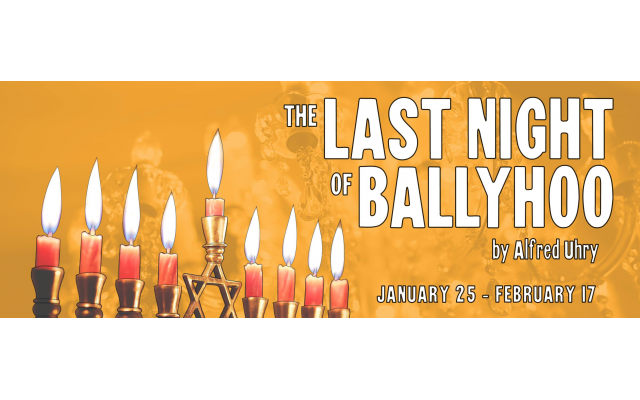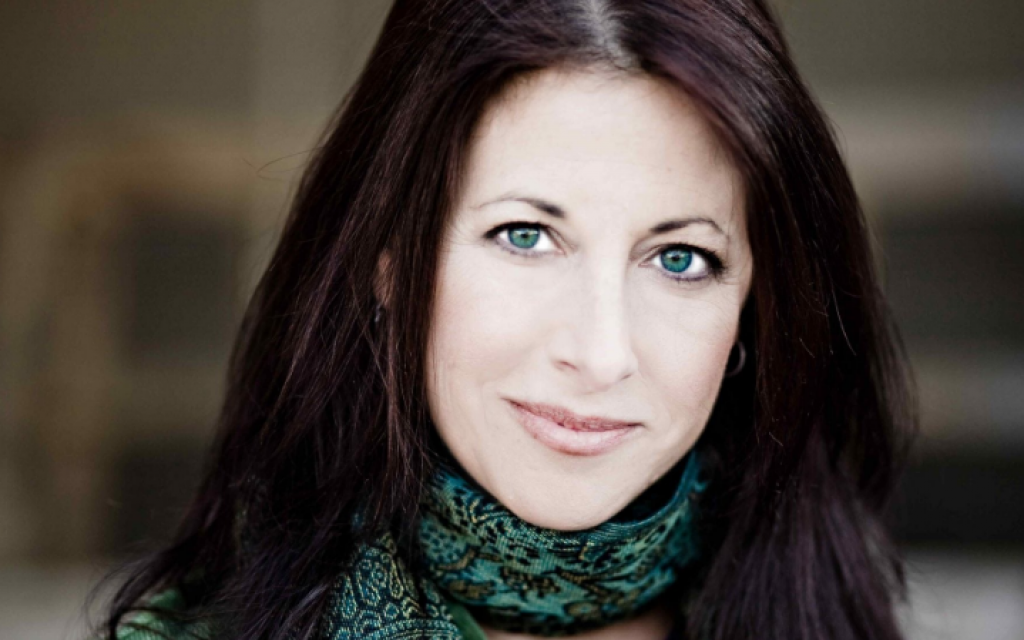‘The Last Night of Ballyhoo’ Comes Home
Atlanta native Alfred Uhry’s “Last Night of Ballyhoo” is returning to its birthplace more than two decades after it premiered as part of the Olympic Games here.

Atlanta native Alfred Uhry’s “Last Night of Ballyhoo” is returning to its birthplace more than two decades after it premiered as part of the Olympic Games here. It opens Friday, Jan. 25, at the Stage Door Players in Dunwoody.
Uhry, who grew up in the Atlanta Jewish community, originally wrote the play as part of the centennial Olympic celebration in Atlanta in 1996. It went on the following year to Broadway, won a Tony Award for best play and was a finalist in the Pulitzer Prize competition.
The play is set in Atlanta in December 1939, a few months after the outbreak of World War II in Europe, and tells the story of a highly assimilated Jewish family just before Ballyhoo, a kind of coming out party for upper middle-class Jewish society in the city.
The director is Mira Hirsch, who founded the Jewish Theatre of the South at the MJCCA. In our conversation, she discussed the “The Last Night of Ballyhoo” as a work of a very particular time and place.
AJT: How does the play reflect a search for Jewish identity in Atlanta at the time?
Hirsch: Jewish identity in 1939, particularly in the South, often was a reduced identity, and clearly Alfred Uhry is speaking from his own experience of having grown up extremely assimilated and knowing very little about Judaism as a religion or even, in many ways, in a cultural sense …
And I think when he wrote the play in the mid-90s, that was a time when he had really begun coming around to his own Judaism after writing “Driving Miss Daisy.”
These plays about the Jews of Atlanta, “Driving Miss Daisy,” written in 1989, and Ballyhoo in 1996, and then “Parade” in 1998, were later career plays for him. He had written about many subjects prior to that and was not dealing with the Jewish experience. I think it marks his evolution, as well as marking many people’s evolution.
I mean I grew up at The Temple. I mean this is the material that I feel. It’s a story and people and ideas that I most closely relate to. So, I feel that I am in a unique place to help tell those stories as a Jew and as a theater artist.

AJT: You think this is an important play for the Jewish community in this city to see?
Hirsch: I do. I think that any play that deals with Jewish identity is important. And so many of the plays that we call Jewish theater plays do deal with identity. I think that’s the constant struggle of the American Jew and, perhaps, any Jew in the diaspora.
It’s something that sociologists have called the ‘competing impulses,’ the urge to assimilate into America versus the urge to survive as Jews. And those things are often at odds with each other. And I think we, as American Jews, are often struggling to find that balance in our lives. A lot of these plays about American Jewish life deal with that conflict.
AJT: It’s also a play about social stratification as well.
Hirsch: Well it’s interesting to look at the history of the Atlanta Jewish community and see how divided we were, among ourselves, into basically the German Jewish community and what they call the other kind, you know, east of the Elbe River. And this is something that I certainly wasn’t aware of as I grew up in the 70s and 80s.
But it’s also a very funny play and some of the lines are very, very funny. Sometimes we’re laughing at them and with them and at ourselves.
I mean most comedies have a serious underbelly. I think the Jewish theater, in particular, has this Jewish idea of laughter through tears.
AJT: The play opens at the Stage Door Players theater in Dunwoody just before tickets for the Atlanta Jewish Film Festival go on sale, and runs concurrently, in February, with the festival. Do you think that will help draw an audience?
Hirsch: I think that the success of the film festival proves that as Jews, as assimilated and connected to the city as we may be, we still crave forms of entertainment and culture that we feel reflect ourselves, and I think it is one of those ways that we can satisfy being connected to the Jewish community. The Jewish theater has been called the secular synagogue. It’s a place we’re combining as a people and gathering around our shared experience. And I think that’s the importance of Jewish culture overall, be it Jewish music or Jewish film or Jewish theater. It gives you a place to share our common identity and culture in this assimilated society.
Tickets to “The Last Night of Ballyhoo” are available at www.stagedoorplayers.tix.com.



comments